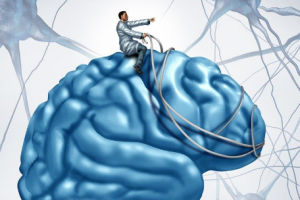Your brain reveals who your friends are
The researchers found that you can predict who people are friends with just by looking at how their brains respond to video clips.
The researchers found that you can predict who people are friends with just by looking at how their brains respond to video clips. Friends had the most similar neural activity patterns, followed by friends-of-friends who, in turn, had more similar neural activity than people three degrees removed (friends-of-friends-of-friends).
The study is the first of its kind to examine the connections between the neural activity of people within a real-world social network. The results suggest that friends process the world around them in exceptionally similar ways.
The study analyzed the friendships or social ties within a cohort of nearly 280 graduate students. The researchers estimated the social distance between pairs of individuals based on mutually reported social ties. Forty-two of the students were asked to watch a range of videos while their neural activity was recorded in a fMRI scanner. The videos spanned a range of topics and genres. Each participant watched the same videos in the same order, with the same instructions. The researchers then compared the neural responses pairwise across the set of students to determine if pairs of students who were friends had more similar brain activity than pairs further removed from each other in their social network.
The findings revealed that neural response similarity was strongest among friends, and this pattern appeared to manifest across brain regions involved in emotional responding, directing one's attention and high-level reasoning. Even when the researchers controlled for variables, including left-handed- or right-handedness, age, gender, ethnicity, and nationality, the similarity in neural activity among friends was still evident. The team also found that fMRI response similarities could be used to predict not only if a pair were friends but also the social distance between the two.
The research team plans to explore if we naturally gravitate toward people who see the world the same way we do, if we become more similar once we share experiences or if both dynamics reinforce each other.
Science daily





Related Posts